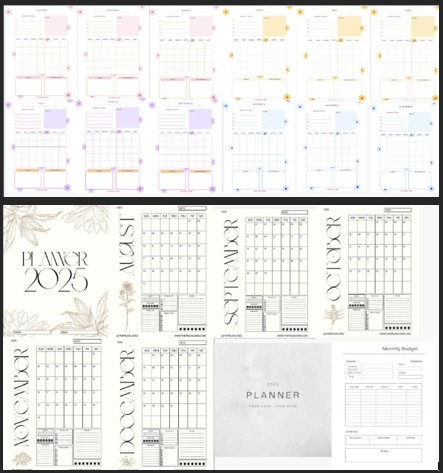Saving money is a great habit, but it can be tricky. Many people work hard to save but make choices that hurt their progress over time. To make your savings count and support your goals, you need more than just setting money aside. You also have to avoid money saving mistakes that quietly undo your efforts. Here are some common mistakes to avoid when saving money, along with simple tips to keep your savings on track.

8 Costly Mistakes to Avoid When Saving Money
Here’s the truth—saving money isn’t always as simple as you’d think. The path to a healthy bank account is filled with tempting shortcuts and silent pitfalls. Keeping an eye out for these common mistakes can help make saving feel less like a daily struggle and more like a rewarding routine.
1. Focusing on a Single Financial Goal
Think about what happens if you only water one plant in your garden. Eventually, the rest wither away, right? The same goes for your financial life.
Putting everything you save into just one goal (like a house downpayment or debt payoff) might seem efficient, but it means you’re leaving other needs—like your emergency fund, retirement, or even regular bills—unattended. Life is unpredictable, and if all your focus is on a single goal, other important areas might fall behind.
Here’s what works: Keep a prioritized list of goals. Pick what matters most right now and give it the majority of your focus, but regularly check in on your other needs. This way, you’re not caught off guard if something unexpected pops up.
2. Letting Panic Drive Your Decisions
Money worries can make even the calmest person feel out of control. When life throws you a curveball, like a car repair or emergency medical bill, it’s easy to make fast decisions that you later regret.
Reacting in panic almost always leads to mistakes—like emptying your emergency fund on something that doesn’t qualify as a real emergency or pulling out investments at the worst possible time.
The fix here is simple (but not always easy): Pause. Take a deep breath, look at your options, and decide with a clear mind. Having a budget and an emergency fund in place makes it much easier to handle stress with your head, not just your gut.
3. Relying on a Single Strategy to Reach Your Goals
Imagine if you only used one tool to fix everything in your house. A hammer won’t help much when you need to tighten a screw.
If you depend on just one method for saving (like cutting expenses only), you’re putting your progress at risk. A sudden job loss, an unexpected bill, or lifestyle changes can make your one plan fall apart.
Get creative. Pair cost-cutting with earning extra income, or explore automated saving tools. Write down backup plans so you’re not scrambling for ideas when things change.
4. Doing Things Which Are Against Your Conscience or Values
Saving money should never mean betraying your own sense of right and wrong. Maybe you’ve seen friends use shady coupons, lie about their age for discounts, or bend the rules in other ways.
If it doesn’t feel right, don’t do it. Saving isn’t worth the stress or regret that comes with violating your values. When you choose methods that align with who you are, you’ll feel good about both the process and the results.
Let your financial choices reflect your character—not just your ambitions.
5. Using OPM – Other People’s Money
Taking out loans or using credit cards for saving or investing is a trap that’s easy to fall into if you’re chasing fast results. The idea sounds tempting: use someone else’s money, invest it, and pocket the returns.
But the market has no guarantees. If things take a turn for the worse, you’ll face losses with no cushion, plus interest payments or debt collectors on your back.
It’s just not worth the risk. Build your savings using your own income, even if it means slower progress. You’ll have more control and peace of mind.

6. Saving Every Single Penny
Penny pinching feels productive at first, but it’s like running a marathon at full speed the whole way. You’ll burn out well before the finish line.
Constant deprivation leads to resentment, and eventually, you might break your budget in a big way just to feel better. Living on rice and beans or saying no to any small pleasure can make life feel miserable.
Balance matters. Allow for a few low-cost joys in your budget, whether it’s a coffee out with friends or a small trip now and then. Saving is about improving your life, not making it feel like punishment.
7. Relying Only on Willpower
Willpower is a limited resource. You can only say “no” to so many things before you start to cave.
Instead of battling every temptation by sheer force, use automatic systems. Set up your bank account to transfer money to savings automatically, or try out budgeting apps that round up purchases or nudge you to stay on track.
Building habits and systems in your favor allows you to save without thinking about it all the time. It’s less stressful and more sustainable.
8. Cutting Costs Without a Plan
Having a big savings stash with no clear purpose is like driving without a map—you’ll end up somewhere, but it may not be where you hoped.
Maybe you’re saving money, but you haven’t decided what it’s for. What happens? You start dipping into it for “extras,” and before you know it, that balance is gone.
Assign every dollar a job. Give your savings real meaning so you won’t be tempted to spend it on a whim. Break big goals into smaller steps and celebrate your progress along the way. You’ll stay focused and feel more motivated.
Saving Money is About More than Discipline
Saving money isn’t just about willpower. It takes clear priorities, good planning, and a bit of kindness to yourself. The best savers don’t just cut back—they watch for the traps that make people spend. Keep your values clear, try different tactics, and let yourself enjoy life along the way.
Everyone makes mistakes but catching them early helps you bounce back. Look at your own saving habits. Are you falling into any common traps? Choose one to fix this week. Your future self will be glad you did.















